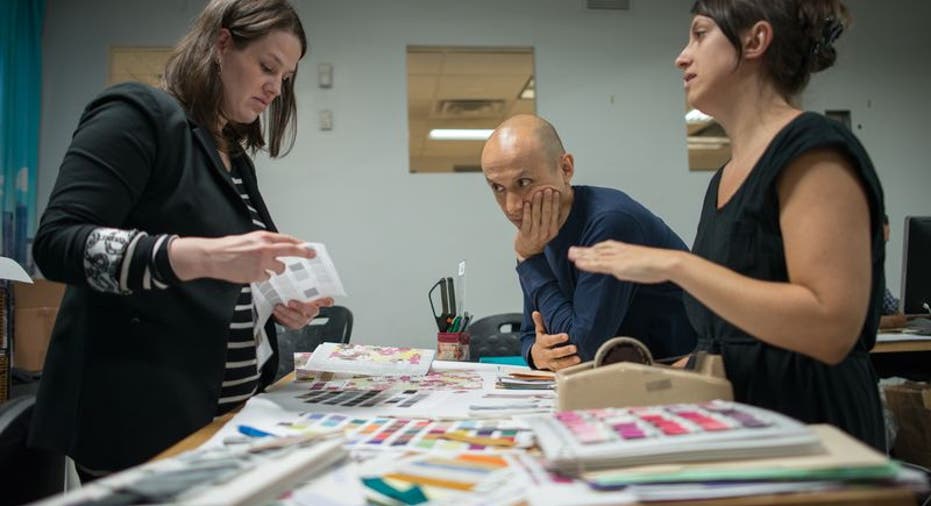Making Made-in-America Easier for Small Businesses

For some U.S. companies, outsourcing production to countries with cheaper labor is the best option – especially for many small businesses without a lot of capital and factory connections. Brooklyn-based startup Maker’s Row wants to change that by becoming a matchmaker for companies looking to outsource manufacturing within the United States. Last week, the startup closed a $1 million seed round led by Comcast Ventures and Index Ventures. “As a small business, it’s incredibly difficult to manufacture overseas,” says Maker’s Row co-founder Matt Burnett, a former designer for Marc Jacobs and DKNY who started manufacturing his own line of watches overseas in China. “The time differences, the language barriers – you get errors as a result.” Given his own manufacturing experiences, Burnett and co-founder Tanya Menendez set out to create a service that would aggregate U.S. manufacturers, making it easy for businesses to connect with great American factories. While Maker’s Row is currently focusing on adding apparel and soft good manufacturers to the service, Burnett says the company intends to expand to other industries in the near future.Benefits of Made-in-America As an entrepreneur himself, Burnett says he sees Maker’s Row capitalizing on what makes American manufacturing attractive to U.S. companies. Aside from not being able to oversee foreign production and catch errors, Burnett says small businesses get short shrift from overseas manufacturers. “You don’t get the same red carpet treatment as large companies,” says Burnett, adding he was pushed to place orders of 1,000 units. “It was small for a big brand, but incredibly large to me.” While the bottom line number may still favor overseas factories, Burnett says quality, shipping costs and turnover time make American manufacturers very competitive. “You look online at the price of goods and production [overseas], but once you input the shipping tax,” says Burnett, the costs add up. He adds that smaller quantities and faster shipments mean that small businesses won’t be sitting on inventory, which can keep them humming along. Burnett says consumers are increasingly looking for Made-in-America goods as well – especially in light of incidents like the Bangladesh building collapse earlier this year. “There’s a huge opportunity for brands to start producing here,” he says. “Without a doubt, there’s interest in Made-in-America growing in the United States.” How It Works Right now, Burnett says Maker’s Row is working to bring on well-respected American manufacturers solely in the apparel and accessories industry. While he wouldn't disclose the vetting process, he says the company relies on its own independent research and community feedback before giving manufacturers access to post profiles on the site. Burnett says manufacturers’ guilds have reached out to the site, helping them grow their database, and cities have also made widespread efforts. “In the city of Newark, Mayor Cory Booker helped bring manufacturers to the database, and he already had a vetted list. He was extremely supportive of introducing us to industry leaders,” says Burnett. There are currently 400 manufacturers on Maker’s Row. Burnett says one handbag manufacturer has received so much business from the site that the company had to hire new management staff to handle the orders. Aside from Comcast Ventures and Index Ventures, Maker’s Row's seed round also included investments from Reddit founder Alexis Ohanian and Joanne Wilson, a well-known angel investor and the wife of Union Square Ventures founder Fred Wilson. Burnett says the investors are interested in seeing Maker’s Row expand to other industries, though there was no clear timeline on when that might happen, or which industries would be next on the list. Burnett says Maker’s Row is monetizing the service by charging manufacturers a monthly subscription fee of $50 per month for basic access, and $200 per month for a premium account, which bumps up the factory’s placement on the site’s search results.



















